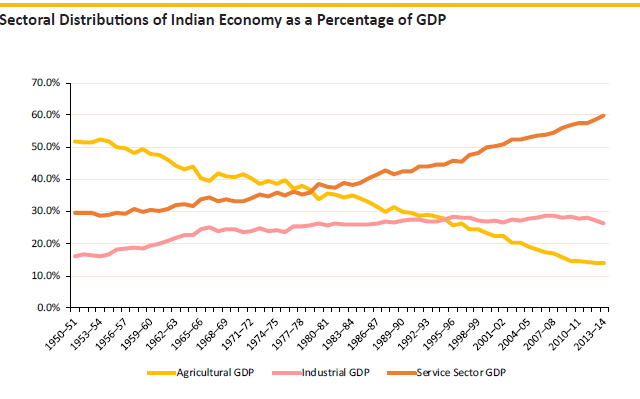Indian Financial Markets: Primary Drivers - Urbanization
and socio economic growth
Form
SEBI Investor Survey 2015
Urbanization and socio economic growth are two
interconnected significant drivers, which are expected to drive investment
growth and an increased penetration in securities markets.
According to the SEBI Investor Survey 2015 (SIS 2015)
data households with similar education and income (the two primary drivers of
socioeconomic growth) in urban areas tend to invest significantly more in the
markets than those in rural areas. 7.1 crore people were added to India’s
cities between 2001 and 2011 and the urban population rose from 27.8% to 30% of
the total population.
By 2026, the urban population is expected to increase to
over 50 crore people, which will constitute 38% of the total Indian population.
In conjunction with this rapid urbanization, the GDP growth rate in India has
strong sectoral differences, some of which may support the development and
growth of stock markets.
Figure 2.3 corroborates the sectoral evolution in the
economy since Independence. The service sector has doubled (as a percentage of
GDP) from less than 30% of GDP (constant prices) in 1950-51 to nearly 60% in
2013-14.
The related concepts of urbanization and service sector
growth in the economy bode well for broader participation in the securities
markets. This, in turn, is an essential component for financial stability and
economic growth in emerging markets.
According to the IMF’s analysis regarding emerging
markets, “Financial development increases a country’s resilience and boosts
economic growth. It mobilizes savings, promotes information sharing, improves
resource allocation, and facilitates diversification and management of risk. It
also promotes financial stability to the extent that deep and liquid financial
systems with diverse instruments help dampen the impact of shocks.”
Policy makers and governments need to be cognizant of
this essential facet in a country’s development paradigm as they create their
road maps for economic growth.



























